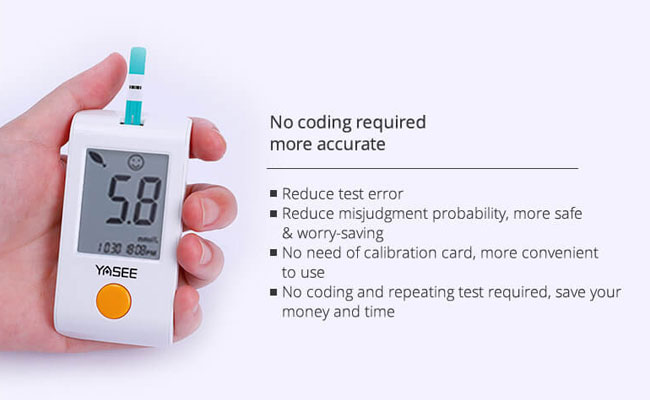
Why do these groups need to monitor oxygen saturation regularly?
2023-01-03
Blood Glucose Monitoring
2023-01-31It is well known that strict control of blood sugar in diabetic patients can reduce the risk of diabetic complications. However, if the blood sugar control is too strict or the medication is inappropriate, it will increase the risk of hypoglycemia. Every year in the hospital, there are patients who need emergency rescue because of severe hypoglycemia coma.
Q1 What is hypoglycemia?
For normal people, blood sugar ≤ 2.8mmol/L belongs to hypoglycemia.
But for diabetic patients, if the blood sugar is ≤3.9mmol/L, it is called hypoglycemia.
Q2 Does asymptomatic hypoglycemia need to be treated?
Hypoglycemia is one of the common complications of diabetic patients. It often has a rapid onset and is very harmful to the human body. Low blood sugar levels can cause brain dysfunction, and long-term hypoglycemia can even damage some brain structures. Patients with severe hypoglycemia can even induce epileptic seizures, coma and even death.
It has been reported in the literature that about 25% of diabetic hypoglycemia is asymptomatic hypoglycemia. Asymptomatic hypoglycemia, especially asymptomatic hypoglycemia at night, is often difficult to detect and cannot be detected in time, causing serious consequences and even death due to untimely treatment.
Therefore, asymptomatic hypoglycemia is more dangerous than symptomatic hypoglycemia. Once a patient is found to have hypoglycemia, even if there are no symptoms related to hypoglycemia, we need to deal with it in time.
In conclusion
Generally speaking, diabetic patients with older age, longer symptoms, and poor islet function are all susceptible groups prone to hypoglycemia. For high-risk groups, timely monitoring and prevention of blood sugar are very important, so don’t take it lightly!




